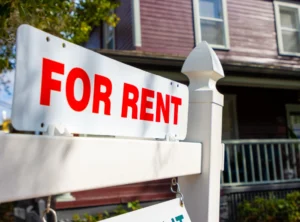Best loans and financing strategies for first-time rent property buyers
 It’s been one of the best ways to grow wealth and take steps toward financial freedom for hundreds of years: buying a rental property. With a combination of cash flow, property appreciation, loan pay down, and tax benefits, it’s clear that rentals are among the best investment choices out there. But one significant hurdle between many would-be real estate investors and their first purchase is financing.
It’s been one of the best ways to grow wealth and take steps toward financial freedom for hundreds of years: buying a rental property. With a combination of cash flow, property appreciation, loan pay down, and tax benefits, it’s clear that rentals are among the best investment choices out there. But one significant hurdle between many would-be real estate investors and their first purchase is financing.
The type of loan or other financing used to purchase the rental property can make a massive difference in overall returns, in addition to whether the buyer can make the deal. Before investing in real estate, we’ll explore everything first-timers need to know about financing their rentals and the impact on their investment.
What to Know Before Buying
Buying a rental property is one of the most significant investments most people will ever make. Therefore, it requires more care and preparation than many expect, especially compared to other, more passive investments like mutual funds. Rental property buyers must be familiar with the real estate market in the city or state they hope to invest in and the neighborhood of a prospective property. This is vital to ensure they buy at a fair price. It’s critical to factor in any updates, repairs, or other expenses required to make the house rent-ready, along with the timeline of how long those jobs will take.
There are countless reasons no homebuyer should skip a home inspection, but this is doubly true for real estate investors. Failing to have a home inspection could cost investors tens or hundreds of thousands. Since it’s common to leverage the equity in your primary residence to finance your real estate investment, taking a serious loss on the investment side could also put other assets at risk.
Property buyers should also consider their plan for managing their investment. Will they self-manage or hire a professional property management company? While the latter is far more accessible, it also will require giving up some returns to pay monthly fees. Self-management helps keep money in investors’ pockets but requires more time and hassle on their part to field phone calls, schedule repairs, and find and vet would-be tenants.
Another critical thing to understand before buying is the nature of the local rental market. This includes average rents for similar properties, what percentage of properties are vacant, and for how long. This will help investors understand their costs and expenses, a necessary step to determining what types of returns to expect. Rental property expenses will include maintenance, capital improvements for big projects like replacing the roof or floors, taxes, and financing for the property itself.
Types of Loans Available
- Mortgage/Bank Loan: This is the most common way people buy homes. A buyer applies to a bank or other lender, which assesses the property and prospective buyer before offering financing terms. Typically, they’ll last 10–30 years, with interest rates prescribed and stable over that period or adjusting based on a specific formula after a defined number of years.
- Hard Money: Hard money loans are short-term financing options generally used by home flippers or those buying properties that won’t currently qualify for traditional bank loans. They’re often for a year or less and interest-only, allowing borrowers to lower their payments by avoiding spending any toward the loan principal. Interest rates can be pretty high compared to other methods, regardless. A typical hard money loan is used while a property is renovated or flipped. Then, it’s paid off by selling the property or refinancing to another type of loan.
- Private Money: Private financing is simply borrowing the purchase price of a rental property from family, friends, or other partners outside the traditional financial system. Terms may vary widely depending on the relationship between the investor and the lender and the nature of the investment.
- Seller Financing: Some buyers may be lucky enough to find sellers who will hold the loan for them. In this case, buyers pay their monthly loan payments directly to the former owner, who now holds the note for the property. This is another flexible financing method that works well for both sides, especially for buyers who struggle to get a traditional loan or sellers concerned about taxes.
- Home Equity Loan: Home equity loans are also an option for would-be investors who already own a personal home. They tap into the equity built up in a home to provide liquid cash – essentially unlocking an investor’s own money. Therefore, they have lower qualification requirements and sometimes more flexible payback terms.
How to Find the Best Financing for You
When looking for financing, it’s vital to consider several different methods and loan providers within these methods. Different banks or lenders can have varying approval standards and APRs, even for the same customer. At a minimum, would-be buyers should check with banks, credit unions, or other financial institutions they have accounts with, which can often provide better rates than non-members.
Buyers should also consider their circumstances when exploring alternative financing. This would include, for example, those who know a wealthy individual who could be a private lending source. In addition, those without a significant down payment can explore hard money loans, as they’re often underwritten more on the property’s value than the borrower.
Improve Your Borrower Profile (or Increase Down Payment)
Sometimes, buyers honestly assess themselves and, unfortunately, don’t find the best borrower from a lender’s perspective. Still, every issue can be fixed with time and hard work. Those with low or no credit will need to improve their scores, ideally through regular, on-time payments of smaller loans like credit cards and auto loans. Paying down debt or getting a raise improves a borrower’s profile by reducing their debt-to-income ratio, a crucial metric used by lenders. This can result in what appear to be small interest rate decreases that, in reality, save tens of thousands over the life of a loan.
Another significant hurdle for potential rental buyers is their down payment. While typical home mortgages can be found for as little as 3% down, rental property loans will almost always require a down payment of 20% or more, sometimes up to 25%. Still, taking the time to save and produce a substantial down payment will make buyers more attractive to lenders compared to others just scraping past the requirements. Investors should also be able to show several months to a year’s worth of cash reserves to reassure lenders they can make payments even if the property remains vacant.
Questions to Ask Lenders
Rental property buyers should view the financing search as a two-way interview designed to ensure both sides are comfortable with the transaction. This means investors need to ask critical questions upfront about qualification requirements like credit score, debt-to-income ratio, down payment, and the types of loans offered. From there, they should inquire about loan minimums or maximums, interest rates, and any additional fees that are part of the financing process.
Once these preliminary questions have been answered, investors can ask to learn more about the underwriting process as well as the finer points of the loan. These include the availability of interest rate “locks” that ensure a guaranteed rate for a specific period, the ability to buy points, and whether there are any prepayment or other penalties. In addition, buyers should find out whether the lender offers pre-qualification or pre-approval letters, both of which provide a crucial boost to buyers in competitive markets.
There’s a Financing Type For Every Would-Be Rental Investor
Financing a rental property can be one of the most challenging parts of real estate investing. Still, would-be buyers should know they have plenty of options, no matter their financial situation, type of property, or other factors. Financing is one of the most underrated components in determining whether a deal is good or bad, so consider the options carefully before purchasing.













 Accessibility
Accessibility